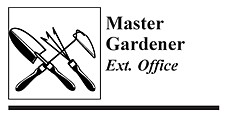August 3, 2006 at 8:29 a.m.
In past years many gardeners dealt with septorid leaf spot, verticullium and fusarium wilt on tomato plants. This is due to warm humid weather. Many of us have hot, dry conditions this summer that produce different problems.
For tomatoes, night temperature is more important than day temperature. Tomatoes like a wide range of temperatures from day to night. The ideal temperature during the day is between 68-77 degrees F and night is between 60-68 degrees F. When the night temperatures are more than 75 degrees F, and the daytime temps are in the high 90's plus, tomatoes will drop blossoms or not set fruit.
This type of summer has resulted in problems on the tomato fruit. Catface is a condition involving and scarring of fruit, particularly at blossom ends. Affected fruit can have cavities extending deep into the flesh. The cause of Catface is not definitely known, but it is generally agreed that any disturbance to flowers can lead to abnormally shaped fruit. Extreme heat, drought, or low temperatures may be the cause of flower injury.
Blossom-end rot is another disorder of tomatoes. This non-parasitic disorder usually begins as a small water-soaked area at the blossom end of the fruit. This may appear while the fruit is green or during ripening. As the lesion develops, it enlarges, becomes sunken and turns black and leathery. Blossom end rot is associated with a calcium deficiency, fluctuation in moisture, heavy application of nitrogen fertilizer, and root pruning. Blossom-end rot can be controlled by uniform moisture, mulching, low nitrogen, and avoid damage to the roots by careful cultivation.
This summer's spike in heat and uneven moisture amounts has caused uneven fruit set, especially in members of the nightshade family. Since tomatoes, peppers, eggplants, potatoes, ground cherries, and Chinese lanterns are in this family, you might experience problems.
Peppers like the same temperature range that tomatoes do but do not respond to the length of day. Therefore, they begin to bloom between 30 to 60 days after planting and it usually takes about a month from bloom to mature fruit. Even though peppers are somewhat drought tolerant, lack of moisture during extreme heat can stress the plant that will cause the flowers to fall off.
Unlike tomatoes, squash are pollinated by insects. If the weather conditions are not right for the insects during pollination, there won't be any or few squash. When you see the flowers fall off cucurbits (squash, pumpkins, melons, and cucumbers) it means the flower was not pollinated.
Sweet corn is also affected by the hot dry weather. The dry conditions can cause the ears to be small, abnormal, and not fill out. Although it may be too late for some garden crops, rain can help the fall harvest.
IN YOUR YARD AND GARDEN: Water trees and shrubs in the landscape. They need 1" of water per week. Water stress can make insect problems more pronounced so it's important to scout for insect problems in your yard.
UPCOMING CLASSES: If you haven't received our fall class series brochure, call 651.674-4417 to have one mailed to you. It is also available in the 'Hot Topics' box at: www.extension.umn.edu/county/chisago. The series will include classes on food preservation.
EVENTS: The Master Gardeners will be at the Almelund Threshing Show Aug. 11-13.
PLANT CLINICS: Volunteer Master Gardeners will be available Mondays from 4-7 at the Extension Office in North Branch at 38780 Eight Ave. to answer your gardening questions. You can also call 651-674-4417 during these hours to speak with a Master Gardener. Samples can be dropped off during the day on Monday if you cannot stop in during clinic hours. Please note MONDAY is the only day you can drop off samples, as there is no longer staff at the North Branch Office who can answer gardening questions.
We are also at the Lindstrom Farmers' Market on Saturdays from 8 a.m.- noon in the parking lot of St. Bridget’s Church at 13060 Lake Blvd.
VOICE MAIL: You can leave a question for a volunteer Master Gardener at 651-674-4417. Depending on the volume of calls, they try to respond within a couple of days. During office hours ask for the Master Gardener voicemail, after hours, select ext. 18. You can also get your question answered on the web at: www.extension.umn .edu/askmg.




Comments:
Commenting has been disabled for this item.